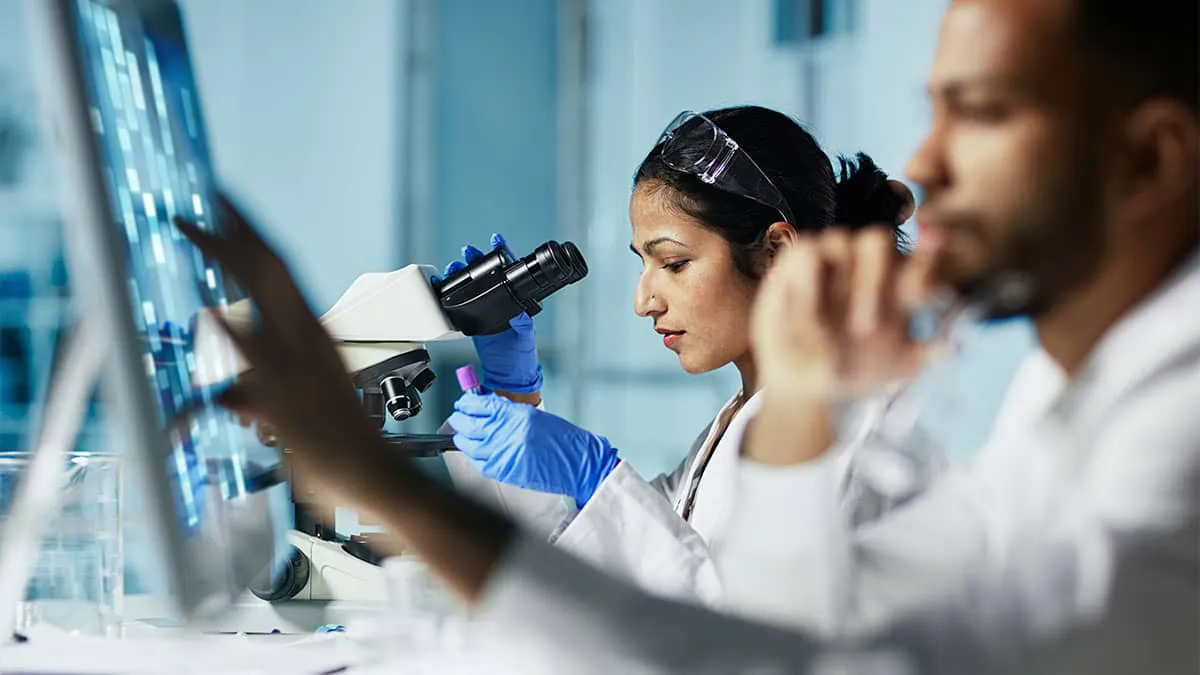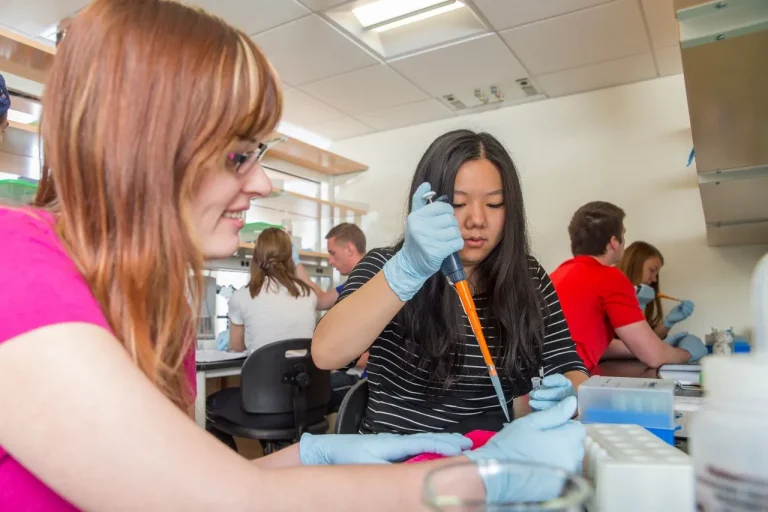Is Biomedical Science A Good Degree? Examining The Pros And Cons
With its blend of biology, medicine, and cutting-edge technology, biomedical science seems like an exciting degree path. But is it a smart career move? There are many factors to weigh. If you’re short on time, here’s a quick answer: Biomedical science offers diverse job prospects in healthcare and research, but requires extensive education.
Overall, it can be a good degree for motivated students passionate about the field.
In this comprehensive guide, we’ll dive into the pros and cons of a biomedical science degree. We’ll look at potential careers, required education, and salary projections. We’ll compare biomedical science to related fields like biology or nursing.
We’ll analyze challenges like competitive medical school admissions and research funding. And we’ll showcase stories from current biomedical science students and professionals. Use this analysis to decide if studying biomedical science aligns with your interests and professional goals.
Career Paths and Job Prospects
One of the main advantages of pursuing a degree in biomedical science is the wide range of career paths and job prospects available in this field. Graduates can choose from various sectors and industries, depending on their interests and goals.
Healthcare Careers
Biomedical science graduates can pursue careers in healthcare settings, such as hospitals, clinics, and diagnostic laboratories. They can work as biomedical scientists, conducting tests and analyzing samples to help diagnose diseases and monitor treatment effectiveness.
Other healthcare roles include medical laboratory technicians, clinical research associates, and healthcare consultants.
Research Careers
For those interested in research, a degree in biomedical science opens up opportunities to work in academic or industrial research settings. Graduates can contribute to scientific discoveries and advancements by conducting experiments, analyzing data, and publishing research papers.
They can work in universities, research institutes, or pharmaceutical companies, focusing on areas such as genetics, microbiology, or drug development.
Biotech and Pharma Careers
Biomedical science graduates can also find rewarding careers in the biotech and pharmaceutical industries. They can work in companies that develop and manufacture medical devices, drugs, and therapies.
Roles in these sectors include quality control analysts, regulatory affairs specialists, and product managers. With the growing demand for new healthcare technologies and treatments, these industries offer excellent job opportunities.
Further Education Requirements
While a bachelor’s degree in biomedical science can open doors to entry-level positions in the field, further education is often required for career advancement. Many professionals choose to pursue advanced degrees, such as a master’s or Ph.D., to specialize in a particular area of biomedical science or to move into leadership or academic positions.
Additionally, obtaining relevant certifications can also enhance job prospects and increase earning potential.
It is important to note that job prospects can vary depending on factors such as location, industry trends, and individual qualifications. Researching and staying updated on industry developments can help individuals make informed decisions about their career paths in biomedical science.
Educational Demands of Biomedical Science
Undergraduate Courses and Training
Biomedical science is a field that requires a strong educational foundation to succeed. Undergraduate courses in biomedical science typically cover a wide range of subjects, including biology, chemistry, anatomy, physiology, genetics, and biochemistry.
These courses provide students with a solid understanding of the fundamental principles and concepts in the field.
Furthermore, undergraduate training in biomedical science often includes laboratory work, where students gain hands-on experience conducting experiments, analyzing data, and interpreting results. This practical training is crucial for developing the skills necessary for a career in biomedical research or healthcare.
Hands-On Learning Opportunities
One of the advantages of pursuing a degree in biomedical science is the abundance of hands-on learning opportunities. Many universities offer research internships, where students can work alongside experienced researchers on cutting-edge projects.
These internships allow students to apply their knowledge to real-world problems and contribute to scientific advancements.
Additionally, some universities have partnerships with hospitals or research institutions, providing students with the chance to participate in clinical rotations or engage in collaborative research projects.
These experiences not only enhance students’ skills and knowledge but also give them a glimpse into potential career paths within the field of biomedical science.
Graduate School Decisions
After completing an undergraduate degree in biomedical science, many students choose to pursue further education in graduate school. Graduate programs in biomedical science offer specialized training and research opportunities that allow students to deepen their understanding of specific areas of interest.
When deciding on a graduate school, students should consider factors such as the program’s reputation, faculty expertise, research opportunities, and funding options. It is important to thoroughly research potential graduate programs and visit the campuses to get a sense of the environment and resources available.
Furthermore, students should also keep in mind that graduate school can be demanding both academically and financially. However, it can also open doors to exciting career opportunities in academia, industry, or healthcare.
Salary and Job Outlook for Graduates
Salary Range for Different Roles
One of the major considerations for students pursuing a degree in biomedical science is the potential salary they can expect after graduation. The salary range for graduates in this field can vary depending on the specific role and level of experience.
According to data from the Bureau of Labor Statistics, the median annual wage for medical scientists, which includes professionals with a biomedical science background, was $88,790 as of May 2020. However, it is important to note that salaries can range significantly, with some entry-level positions starting around $50,000 and high-level positions earning well over six figures.
Projected Job Growth and Stability
The job outlook for graduates with a degree in biomedical science is promising. The field is expected to experience a faster-than-average growth rate in the coming years, driven by advancements in medical research and technology.
According to the Bureau of Labor Statistics, employment of medical scientists is projected to grow 6 percent from 2020 to 2030, adding approximately 8,400 new jobs.
This projected growth indicates a stable job market for graduates, with ample opportunities for career advancement and job security. As the healthcare industry continues to expand, there will be a growing demand for biomedical scientists to contribute to research, development, and innovation.
Payoff of Graduate vs. Bachelor’s Degree
While a bachelor’s degree in biomedical science can open doors to entry-level positions in the field, pursuing a graduate degree can lead to higher earning potential and career opportunities. Graduates with a master’s or doctoral degree in biomedical science often have access to more advanced roles, such as research scientists or academic professors.
According to a report by the National Institutes of Health, individuals with a doctoral degree in biomedical science have a median salary of $105,000, compared to $80,000 for those with a master’s degree and $60,000 for those with a bachelor’s degree.
This data showcases the potential payoff of investing in higher education within this field.
It’s important to note that salary and job prospects can also vary depending on factors such as location, industry, and individual experience. Therefore, it is advisable for students to conduct thorough research and consider their personal goals and aspirations when deciding whether to pursue a graduate degree in biomedical science.
How Biomedical Science Compares to Related Fields
Biomedical Science vs. Biology
While both biomedical science and biology are related fields, they have distinct differences. Biomedical science focuses on the application of biological knowledge to medical research and healthcare, whereas biology is a broader field that encompasses the study of living organisms and their processes.
Biomedical science delves deeper into the molecular and cellular level, exploring diseases and their mechanisms, while biology covers a wider array of topics such as ecology, evolution, and genetics. Both fields offer unique opportunities and career paths, so it ultimately depends on your interests and goals.
Biomedical Science vs. Biotechnology
Biomedical science and biotechnology are closely intertwined, but they have different focuses. Biomedical science involves researching and understanding diseases, developing new treatments, and conducting clinical trials.
On the other hand, biotechnology applies biological knowledge to develop new products and technologies for various industries, such as agriculture, pharmaceuticals, and environmental science. Biomedical scientists often collaborate with biotechnologists to translate research findings into practical applications.
So, if you’re more interested in the research and medical aspects, biomedical science may be the right choice for you.
Biomedical Science vs. Nursing
Biomedical science and nursing are both healthcare-related fields, but they have different roles and responsibilities. Biomedical scientists focus on research and laboratory work, conducting experiments, analyzing data, and contributing to scientific knowledge.
Nurses, on the other hand, provide direct patient care, administer medications, and assist with medical procedures. While both fields are crucial for the advancement of healthcare, they cater to different interests and skill sets.
If you have a passion for research and a desire to contribute to medical knowledge, biomedical science may be the better fit.
Biomedical Science vs. Medical School
Biomedical science and medical school are distinct paths towards a career in healthcare. Biomedical science is a bachelor’s degree program that provides a strong foundation in scientific research, while medical school is a professional degree program for aspiring doctors.
Biomedical science graduates can pursue careers in research, academia, or work as laboratory technicians. On the other hand, medical school graduates become licensed physicians who diagnose and treat patients.
Although biomedical science can be a stepping stone towards medical school, it also offers various career opportunities outside of becoming a doctor.
Challenges and Considerations for the Degree
Competitive Medical School Admissions
One of the main challenges for students pursuing a biomedical science degree is the highly competitive nature of medical school admissions. Medical schools typically have a limited number of spots available, and the number of applicants far exceeds the available seats.
It is essential for aspiring medical professionals to have an excellent academic record, high MCAT scores, and a strong application package to stand out from the crowd. Additionally, extracurricular activities, such as research experience and volunteer work, can also play a crucial role in the selection process.
Securing Research Funding
Another consideration for biomedical science students is the need to secure research funding. Conducting research is an integral part of the degree program, and it often requires financial support to cover laboratory expenses, equipment, and other research-related costs.
Students may apply for grants or scholarships to fund their research projects, but the competition for these funding opportunities can be fierce. It is important for students to develop strong research proposals and actively seek out funding options to support their studies.
Industry Regulation and Trends
Biomedical science is a field that is constantly evolving, with new discoveries and advancements being made regularly. However, this dynamic nature of the industry also means that there are strict regulations and trends that students need to be aware of.
Keeping up with the latest research developments, staying informed about ethical considerations, and understanding the regulatory landscape are all important aspects of pursuing a career in biomedical science.
Students must be adaptable and willing to continuously update their knowledge and skills to stay competitive in the field.
Conclusion
Overall, biomedical science offers diverse career paths at the intersection of biology, medicine, and technology. It’s a rigorous but rewarding field for motivated students who are drawn to hands-on healthcare and lab work. Carefully weigh the long educational timeline and high upfront costs.
But if you have a passion for advancing scientific knowledge and improving lives, a biomedical science degree can be an excellent choice.







